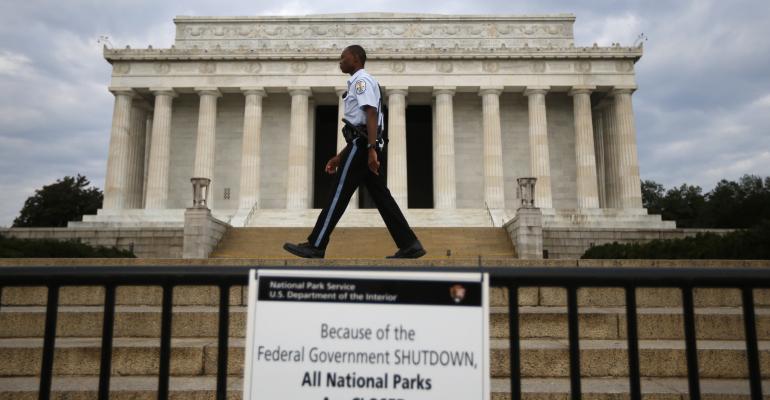As irresponsibly as U.S. leaders have behaved in managing the U.S. economy in recent years, there’s still little chance that they will allow the nation to default on its debts. An actual default would be unthinkable, not simply because the United States is fully capable of paying its debts, but because of the damage it could inflict on the financial system. Regardless of the genuine disagreements over policy, a member of Congress voting in favor of default would have to justify that action as consistent with his Constitutional duty. Even if one were to argue that the long-term consequences of the policies they’re opposing (that is, ObamaCare, runaway spending) are highly damaging to the country, it would be very difficult to argue that imminent default would be more consistent with serving the interests of the nation. Faced with such a choice, only the most irrational or retrograde legislator would be able to justify a vote in favor of default. Accordingly, investors should expect the current standoff to be resolved before Congress crosses that Rubicon.
Investment Implications
Nonetheless, the spectacle of political gridlock is sending an important – and undeniable – message with important investment implications: there’s little prospect of meaningful fiscal reform contributing to economic growth in the years ahead. The U.S. economy requires serious entitlement and tax reform to grow more robustly, but the odds of such reforms gaining traction in today’s noxious political climate are zero. Instead, the current spectacle should make it abundantly clear to investors that nothing constructive is going to come out of the fiscal side of government for years to come. Investors should therefore conclude that monetary policy will have to continue doing double duty for a prolonged period of time. This means that the Federal Reserve will likely keep interest rates at near zero for far longer than expected (possibly for most of the decade). It also means that while the central bank will still likely taper its bond purchases starting in early 2014, it’s perfectly conceivable that it will resume such purchases if economic growth seriously falters in the future.
Investors should also understand that the U.S. economy would be at serious risk in the absence of an activist and accommodative monetary policy. This is a very dangerous situation due to the long-term consequences of that policy – growing debt levels, distorted asset prices, growing wealth disparities. That’s why what’s happening in Washington, D.C. is so disturbing, not just on its own terms, but also because of what it’s effectively forcing the Federal Reserve to do in a fiscal policy vacuum. When historians look back on this period from a vantage point that’s experienced the consequences of the current policy regime, they’ll be forced to acknowledge that the failure of fiscal policy forced monetary policy to pursue an extremely dangerous course. Subjects like ObamaCare may be the text of the debate, but the imbalance between fiscal policy and monetary policy is the far more important subtext that is sowing the seeds of the next financial crisis.





